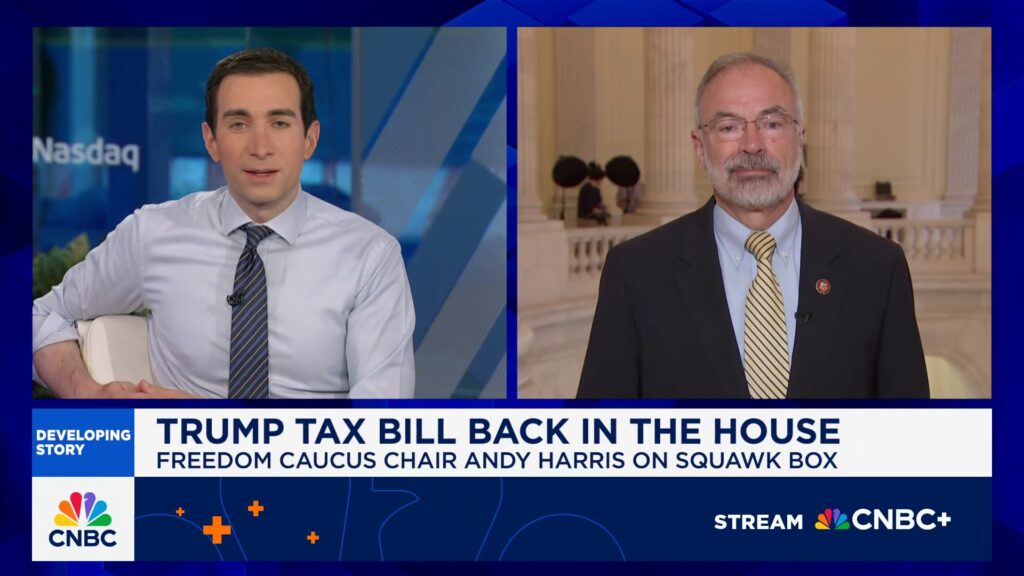
House Freedom Caucus Chair Rep. Andy Harris (R-Md.) has voiced significant concerns over President Trump’s proposed tax and spending bill, which aims to inject $750 billion into the economy. Speaking on CNBC’s ‘Squawk Box,’ Harris emphasized the potential risks of exacerbating the national deficit and debt, which he believes could have long-term economic repercussions.
Harris’s comments come at a critical juncture as the House deliberates on the Senate-passed version of the bill. The Maryland congressman highlighted his apprehensions about the fiscal prudence of such a substantial financial commitment, stating that adding this amount to an already large deficit “is probably not a good idea.”
House Freedom Caucus’s Stance
The House Freedom Caucus, known for its fiscally conservative stance, has been a vocal critic of excessive government spending. Harris’s remarks reflect a broader sentiment within the caucus, which has consistently advocated for budgetary restraint and fiscal responsibility.
According to Harris, the bill’s current form lacks sufficient measures to offset the proposed expenditure, a factor that could lead to increased borrowing and heightened national debt. “We need to ensure that any spending increase is balanced with cuts elsewhere,” Harris argued, underscoring the necessity of a balanced approach to fiscal policy.
Comparisons to Historical Precedents
Historically, significant tax and spending bills have often sparked debates over their long-term economic impacts. The Reagan administration’s tax cuts in the 1980s, for instance, were initially met with similar concerns about increasing deficits. However, proponents argue that such measures can stimulate economic growth, potentially offsetting initial fiscal imbalances.
Economists remain divided on the issue. Some suggest that strategic investments can lead to economic expansion, while others warn of the dangers of ballooning debt. The current proposal has reignited these debates, with stakeholders from various sectors weighing in on its potential outcomes.
Expert Opinions and Economic Implications
Economists are closely monitoring the bill’s progression, with many highlighting the importance of careful implementation. Dr. Lisa Anderson, an economist at Georgetown University, noted, “While the intention to boost the economy is commendable, the execution must be meticulously planned to avoid long-term fiscal pitfalls.”
“The national debt is already at a historic high, and adding to it without a clear repayment strategy could be detrimental,” Anderson warned.
Meanwhile, some experts argue that the bill could provide a much-needed stimulus in the wake of recent economic challenges. “If done correctly, this could be a catalyst for growth,” said Mark Thompson, a financial analyst. “However, the key lies in ensuring that the benefits outweigh the costs.”
Looking Ahead: Potential Outcomes and Next Steps
As the bill moves through Congress, the debate over its merits and drawbacks is expected to intensify. Lawmakers are tasked with balancing immediate economic needs against the backdrop of long-term fiscal health.
Rep. Harris and his colleagues in the House Freedom Caucus are likely to push for amendments that incorporate more stringent fiscal controls. The outcome of these discussions will have significant implications for both the economy and the political landscape.
The next steps involve rigorous negotiations and potential revisions to the bill, as stakeholders strive to reach a consensus that aligns with both economic and fiscal priorities. The coming weeks will be crucial in determining the final shape of the legislation and its impact on the nation’s financial future.







